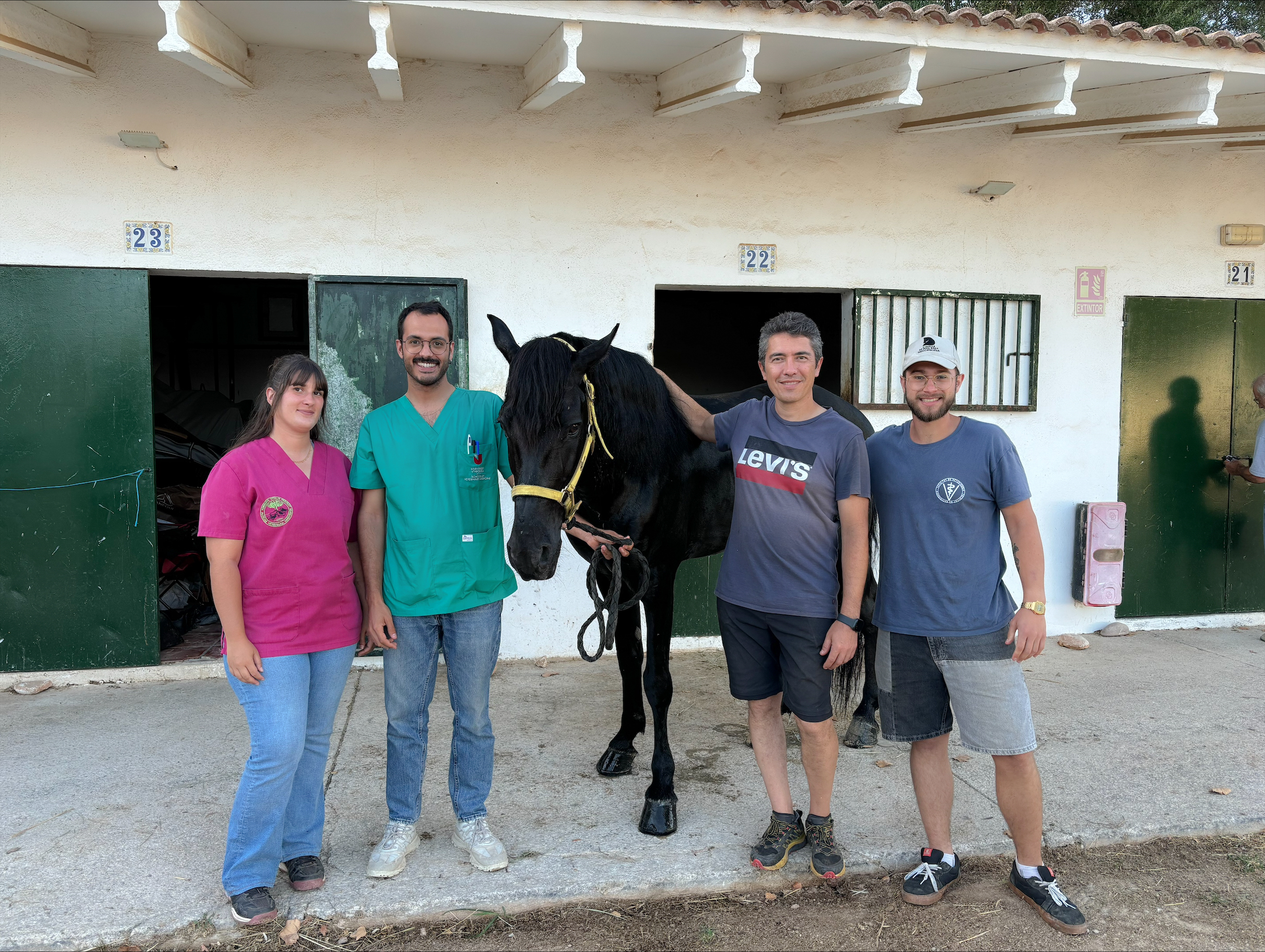10 July 2024
The study titled ‘Sero-molecular survey and associated risk factors of equine piroplasmosis in purebred Menorcan horses’ commenced last week in Menorca, Balearic Islands, Spain. Led by Dr Sergi Olvera-Maneu, Assistant Professor at UNIC’s School of Veterinary Medicine, and his team, this research focuses on equine piroplasmosis, an infectious disease caused by the protozoa Babesia caballi and Theileria equi, transmitted by ticks.
This disease restricts the international movement of horses from countries like Spain to disease-free regions, causing significant economic losses for the equine industry. There are limited studies on the prevalence of this disease in some regions of Spain, and information on its status in purebred Menorcan horses is almost non-existent. Funded by the Institut Menorquí d’Estudis (IME) in Spain, the project’s main goal is to estimate the seroprevalence of equine piroplasmosis in purebred Menorcan horses in Menorca. By understanding the disease’s status, the team aims to establish effective control and surveillance programmes to minimise its spread.

Photos: L-R: Dr Tania Garcia, Dr Sergi Olvera-Maneu, Dr Eduard Jose, Joan Vinent
The research team comprises Dr Sergi Olvera-Maneu (UNIC Health), Dr Fátima Cruz (Visavet, UCM), Dr Manel López Béjar (UAB), and Dr Eduard José Cunilleras (UAB). Dr Tania Garcia and vet student Joan Vinent at UAB assisted in the sampling journeys.

